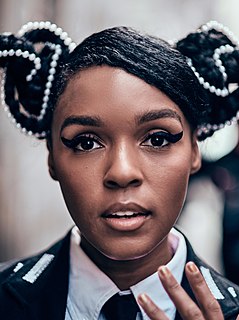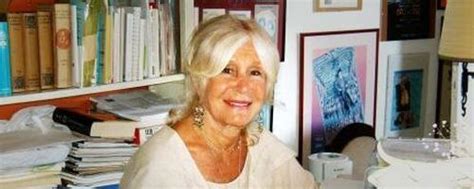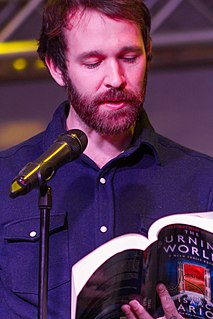A Quote by Janelle Monae
My grandmother was the matriarch. If you didn't have a place to stay, if you needed food, if you were just coming out of jail or rehab, you went to her. Watching her in our family and our wider community was what inspired me and still does.
Related Quotes
I think her Grandmother Hall gave her a great sense of family love, and reassurance. Her grandmother did love her, like her father, unconditionally. And despite the order and the discipline - and home at certain hours and out at certain hours and reading at certain hours - there was a surprising amount of freedom. Eleanor Roosevelt talks about how the happiest moments of her days were when she would take a book out of the library, which wasn't censored.
My grandmother was determined that everyone feel a sense of optimism and opportunity. Marc and I want to make sure we're doing that. This period of our lives is not just a tribute to her, it's inspired by her. And it's for when we have our own children — I want to help make sure we've got a world I want them to live in.
Nearly every morning, a certain woman in our community comes running out of her house with her face white and her overcoat flapping wildly. She cries out, "Emergency, emergency," and one of us runs to her and holds her until her fears are calmed. We know she is making it up; nothing is has really happened to her. But we understand, because there is hardly one of us who has no been moved at some time to do just what she has done, and every time, it has taken all our strength, and even the strength of our friends and families, too, to keep us quiet.
Since the fright of breast cancer hit our family, I have been surprised by how many people are dealing with breast cancer in their own family or with a loved one. One friend bluntly told me that she has been through it with her sister, her mom, and her grandmother, and all are healthy and mentally stronger because of the disease.
One of the patients that really stands out for me was a middle-aged woman who actually had HIV in the early days, and helping her kind of come to terms with that. She had rather late-stage illness, but just helping her, sort of cope with the challenges of the disease and the infections and all that, but also her social issues, like, coming out to her family about the illness, and a very religious family.
I think the relationship [in Aquarius] with her nephew shows that she's not nostalgic. She just wants to preserve what is important to her - her records, her books, even some furniture. She doesn't want to leave that house because it is her home. That is where her kids were born. After moving so much in my life, I was touched by Clara's need to stay in that apartment. I love her life, and that may be why I connected to her so strongly. We are the most alike when we are fighting for our rights.
I was raised by a lady that was crippled all her life but she did everything for me and she raised me. She washed our clothes, cooked our food, she did everything for us. I don't think I ever heard her complain a day in her life. She taught me responsibility towards my brother and sisters and the community.
-no girl had ever moved me with a story of spiritual suffering and so beautifully her soul showing out radiant as an angel wandering in hell and the hell the selfsame streets I'd roamed in watching, watching for someone just like her and never dreaming the darkness and the mystery and eventuality of our meeting in eternity.
In the eulogy by the graveside, I told everyone how my sister and I used to sing to each other on our birthday. I told them that, when I thought of my sister, I could still hear her laughter, sense her optimism, and feel her faith. I told them that my sister was the kindest person I;ve ever known, and that the world was a sadder place without her in it. And finally, I told them to remember my sister with a smile, like I did, for even though she was being buried near my parents, the best parts of her would always stay alive, deep within our hearts.
Hazel has to realize that her mom was wrong when she said, “I won’t be a mother anymore.” The truth is, after Hazel dies (assuming she dies), her mom will still be her mom, just as my grandmother is still my grandmother even though she has died. As long as either person is still alive, that relationship survives. (It changes, but it survives.)




































